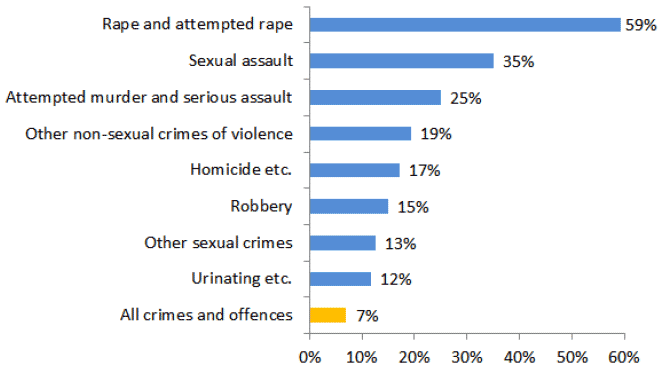Criminal proceedings in Scotland 2016-17: statistics
Statistics on criminal proceedings concluded in Scottish courts and alternatives to prosecution, issued by the police and by the Crown Office.
This document is part of a collection
3. Acquittals by crime type
As outlined in section 2, there was an overall conviction rate of 86% in 2016-17 (calculated by dividing the number of people convicted by the number of people proceeded against). Five per cent were acquitted on a 'not guilty' verdict, and around one per cent were acquitted on a 'not proven' verdict. The remaining seven per cent either had a plea of ' not guilty' accepted or their case was deserted by the prosecution. These proportions are broadly the same as in 2015-16.
The overall acquittal rate (for 'not guilty' and 'not proven' verdicts) of six per cent is driven by the acquittal rates of the crime types within crimes of dishonesty (three per cent), motor vehicle offences (two per cent) and "other crimes" (three per cent), which make up around 60% of all proceedings (64,821).
Chart 3: Crime types with the highest acquittal rates

Chart 3 shows the crime types with the highest acquittal rates in comparison with the overall rate of seven per cent in 2016-17:
- The highest rate was seen for rape and attempted rape, where 59% or 149 people of the 251 proceeded against were acquitted;
- There were also high acquittal rates for sexual assault (35% had their case acquitted); and
- Crimes of attempted murder and serious assault and other non-sexual crimes of violence had relatively high acquittal rates in comparison with the seven per cent average for all crimes and offences, standing at 25% and 19% respectively.
Twenty-two per cent of people proceeded against for theft of a motor vehicle had a plea of not guilty accepted or the case against them was deserted, the highest proportion of all crime groups.
Contact
There is a problem
Thanks for your feedback